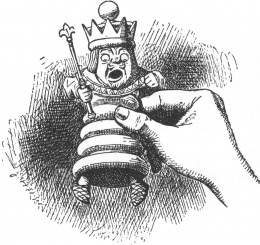Difference between revisions of "Chapter 20"
| (3 intermediate revisions by the same user not shown) | |||
| Line 1: | Line 1: | ||
| − | [[File:Chapter | + | [[File:Chapter 19.jpg|thumb|right|260px| She was a woman living in a misogynist world]] |
| − | <blockquote>'' | + | <blockquote>She stared at the page with a mixture of horror and disbelief. A new misogynistic sexual practice. ''Donkey punch''. Was it for real? Supposedly ‘fucking someone in the ass and then punching them hard in the back of the head or neck, so that the sudden pain and/or unconsciousness causes the asshole to constract spasmodically”. It affected her so deeply that she burst into tears and slammed the lid of her laptop. It’s not that she hadn’t seen uglier things. “It was that sexualized violence against women is now so normalized that somehow, it’s deemed appropriate to graphically illustrate it on fucking Wikipedia”. She was a woman living in a misogynist world, “a world I’ve watched grow only more deeply misogynist over the course of my adult life”.</blockquote> |
| − | </blockquote> | ||
| − | + | Wikipedia set out with a grand utopian vision, promising power to a community that anyone could join, promising to bring all human knowledge the whole world. As long as the government, or any other elitist self-elected group did not interfere with the editing process, everything was supposed to work out fine. What went wrong? How did the site that anyone can edit turn into a site that was repulsive to women, and to many other groups and communities in the outside world? | |
| − | + | ‘Wikipedia is not censored’ says Wikipedia. Yet practically everyone in the world accepts age restrictions on pornography, especially extreme pornography. “Only Wikipedia pretends that this is somehow some sort of novel idea, created as a special and inequitable imposition on Wikimedia, that threatens the survival of the civilised world – as though that survival depended on people’s ability to upload their sex-tourism porn made in Thailand and images of their inflated scrotums anonymously”. | |
| − | |||
| − | |||
| − | |||
| − | |||
| − | |||
| − | |||
| − | |||
| − | |||
| + | <noinclude> | ||
==See also== | ==See also== | ||
*[[Chapter 19]] | *[[Chapter 19]] | ||
*[[Wikipedia through the Looking Glass]] | *[[Wikipedia through the Looking Glass]] | ||
*[[Chapter 21]] | *[[Chapter 21]] | ||
| + | |||
| + | [[Category:Chapters]] | ||
| + | [[category:Released]] | ||
| + | </noinclude> | ||
Latest revision as of 16:36, 5 April 2014
She stared at the page with a mixture of horror and disbelief. A new misogynistic sexual practice. Donkey punch. Was it for real? Supposedly ‘fucking someone in the ass and then punching them hard in the back of the head or neck, so that the sudden pain and/or unconsciousness causes the asshole to constract spasmodically”. It affected her so deeply that she burst into tears and slammed the lid of her laptop. It’s not that she hadn’t seen uglier things. “It was that sexualized violence against women is now so normalized that somehow, it’s deemed appropriate to graphically illustrate it on fucking Wikipedia”. She was a woman living in a misogynist world, “a world I’ve watched grow only more deeply misogynist over the course of my adult life”.
Wikipedia set out with a grand utopian vision, promising power to a community that anyone could join, promising to bring all human knowledge the whole world. As long as the government, or any other elitist self-elected group did not interfere with the editing process, everything was supposed to work out fine. What went wrong? How did the site that anyone can edit turn into a site that was repulsive to women, and to many other groups and communities in the outside world?
‘Wikipedia is not censored’ says Wikipedia. Yet practically everyone in the world accepts age restrictions on pornography, especially extreme pornography. “Only Wikipedia pretends that this is somehow some sort of novel idea, created as a special and inequitable imposition on Wikimedia, that threatens the survival of the civilised world – as though that survival depended on people’s ability to upload their sex-tourism porn made in Thailand and images of their inflated scrotums anonymously”.
